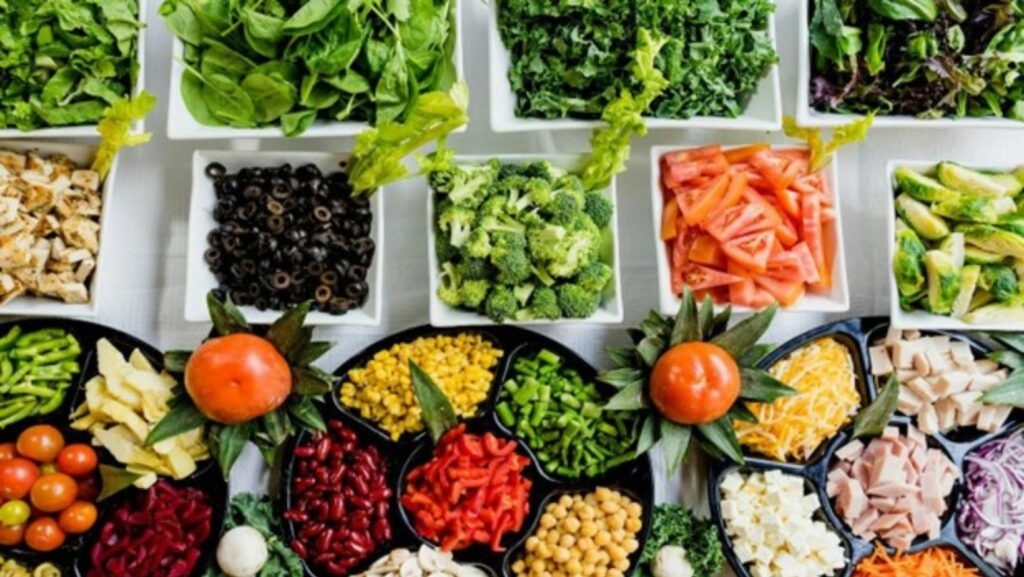The food industry is an important player worldwide, but unfortunately, it has some issues that pose problems to its productivity. The challenges it currently deals with are product safety, food traceability, and lack of transparency. So, governments and company owners needed to come up with a solution, and blockchain is a technology that has the potential to revolutionize the food industry’s performance.
Blockchain can bring many advantages to the food industry, as it can enhance safety and make companies’ operations worldwide more sustainable, traceable and transparent. Blockchain is a digital ledger with great features, as it is decentralized, immutable, and transparent. And luckily, it can bring these attributes into a lot of sectors, including the food industry. Because blockchains are decentralized platforms, they are not controlled by a central authority, like a government or a bank, which can improve security and safety in the food industry.
So, blockchain is a tool that can greatly enhance the food industry’s performance. If you want to know how it can do that, keep on reading.
Blockchain Has The Potential To Enhance The Food Supply Chain
Blockchain can improve many operations in the food supply chain for all the parties involved in this process, such as companies, processors, retailers, and even consumers.

For once, blockchain enhances food traceability from the moment a product leaves the place it was produced until it arrives at customers. Food traceability is very important in the supply chain, as it can improve safety, diminish the chance of food fraud, and increase customer trust.
Additionally, blockchain can improve transparency in the food industry, building better trust for all the parties involved. Let’s take the example of a cocoa supplier to give you a better idea of how blockchain can increase transparency. With the help of blockchain, the supplier would record information about cocoa products on the blockchain, including their origin, sustainability details, and any other details important to the product. Because blockchain is a distributed ledger, all the other participants would be able to see this particular data, and customers would have a better insight into the integrity of the food.
Another great advantage blockchain can bring to the food supply chain is that it would streamline many operations, saving money and time. Because blockchain is decentralized, it eliminates the need for intermediaries, so all the transactions would be executed much faster. This also enhances security and reduces the chances of fraud and errors.
Blockchain Improves Food Safety
Currently, the food industry faces numerous challenges that can pose problems, including poor safety standards and counterfeit products. Poor food safety is a pressing issue, as this can have adverse reactions on people’s health. In the food industry, even if the products have been mishandled for a short period, they can become unsafe and bring a lot of consequences to people’s lives. Not to mention that in most cases, the contamination will not even be realized until it is too late, and effects start to appear on people’s health. When the food gets contaminated, it becomes a significant public health issue with terrible effects. Counterfeit food products are another issue in the food industry that can pose problems to people’s health, and if people eat these foods, they will probably become ill.
However, blockchain can greatly solve these issues and increase food safety. With the help of blockchain, consumers can see exactly where the products are coming from, so they will be assured that they don’t deal with products that can pose an issue to their health. With blockchain’s help, consumers can keep track of how companies have handled certain products, from raw elements to finished products. In this way, they can maintain the safety and quality of goods and solve anything that can have negative effects on people’s health.

Consumers always need to buy from companies they trust that want to offer the best to their clients. One example of this kind is Ofi, which provides natural good ingredients and safe products for customers worldwide.
Blockchain Can Reduce Waste And Improve Sustainability
Blockchain has the potential to revolutionize sustainability for companies from all around the world and help them reduce their carbon footprint. With the help of blockchain, businesses can better track the movements of goods in the supply chain, which will help them find how resources are being wasted. After they discover how much food gets wasted, they can use this information to take action and reduce their waste.
Besides reducing waste in food products, with blockchain, companies will also be able to better monitor important resources like electricity and water, lowering their environmental impact. Food gets wasted for many reasons, and delayed shipment or bad inventory management is among the most popular. Because of these factors, organizations could experience massive losses, which will make them produce more, and this will have a negative impact on the bottom line of a company and the environment.
However, with the help of blockchain, organizations will always be able to keep better track of their inventory, which will have a real effect on reducing wastage and improving efficiency.
Wrapping Up
Blockchain has the potential to revolutionize many industries, including the food sector. With blockchain’s help, food industry companies will benefit from better transparency, improving safety and customer trust. In the future, blockchain will surely be adopted more in the food sector, as it brings advantages that no one can deny.
So, are you ready to see a world where you can better track the sources and origins of foods and where food waste is greatly reduced? Luckily, with the help of blockchain, we might be able to see that future sooner.


More Stories
Bangladesh Take Control on Rain-Hit Day in Sylhet
Beyond Self-Care: Creating a Sustainable Lifestyle of Well-Being
Shipping Containers for Sale in California: What You Need to Know Before Purchasing